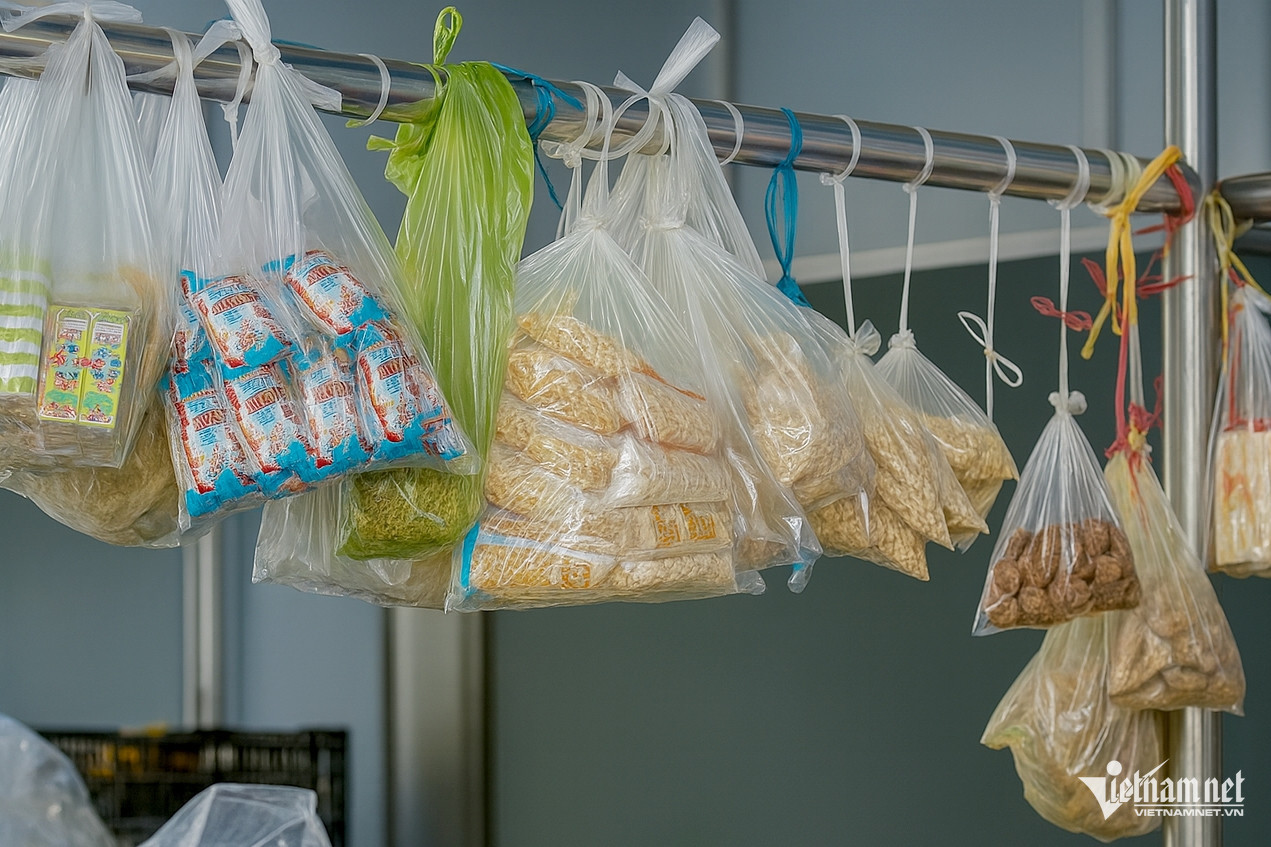Starting January 1, 2026, hotels and tourist destinations in Hanoi will no longer circulate or use single-use plastic products or packaging. One year later, on January 1, 2027, markets and convenience stores in the city will also stop providing free plastic bags.

Some supermarkets in Hanoi have already begun adopting reusable bags to replace single-use plastic bags.
Next in the timeline, by January 1, 2028, packaging made from non-biodegradable plastic - such as difficult-to-decompose nylon bags and styrofoam containers - will no longer be permitted for storing or making direct contact with food.
This policy is part of a newly approved resolution by the Hanoi People's Council, outlining measures to reduce plastic emissions across production, commerce, services, and daily activities in the city. It follows Clause 2, Article 28, Point d of the Capital Law. The resolution establishes a phased approach to ending the production, import, and use of single-use plastic products (excluding those certified with the Vietnam Eco-label), non-biodegradable plastic packaging, and goods containing microplastics across Hanoi.
For the service industry, the city mandates that hotels and tourist areas stop using single-use plastic products such as toothbrushes, razors, cotton swabs, shower caps, and single-use plastic packaging for toothpaste, body wash, lotion, shampoo, and conditioner for guest use.
Markets and convenience stores will no longer be allowed to provide free non-biodegradable plastic bags. They must also phase out the use and circulation of single-use plastic products and non-biodegradable plastic packaging, including food containers and styrofoam trays. In public institutions, government agencies, organizations, and affiliated groups will also be required to cease the use of single-use plastic products and non-biodegradable packaging by January 1, 2028.
According to the World Bank, Vietnam consistently ranks among the top 10 countries for plastic waste leakage. In 2018, the country generated around 3.7 million tons of plastic waste, with projections suggesting this figure could rise to 7.6 million tons by 2030. Of this, only 0.4 million tons are recycled; the rest is mostly incinerated, dumped, or landfilled.
In the manufacturing sector, businesses using polyethylene (PE) and polypropylene (PP) plastics in packaging must include at least 20% recycled material, increasing to 30% within two years. From January 1, 2031, the production and import of single-use plastic products, non-biodegradable packaging, and goods containing microplastics will be banned - except for items intended for export or for packaging products sold in the market.
According to the Hanoi People’s Committee, over 1,400 tons of plastic waste are generated daily across the city, with more than 60% being single-use plastics and plastic bags. The volume of single-use plastic bags from supermarkets is especially high. A survey of 48 supermarkets found that 104,000 plastic bags are distributed free of charge every day - equal to about 38 million bags annually.
Plastic bags alone account for 38.5% of total plastic waste by weight, followed by multilayer packaging at 21.4%. Most of these materials are either incinerated or buried in landfills. Thus, Hanoi’s decision to enact specific plastic reduction measures is both necessary and in line with national environmental policies.
N. Huyen